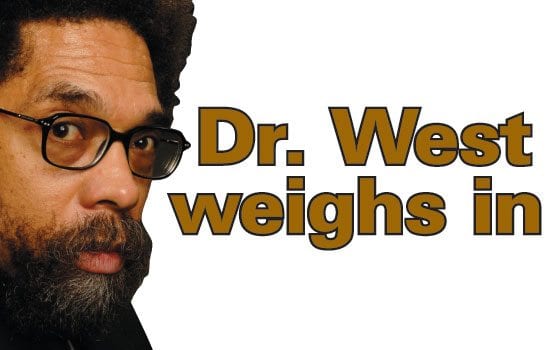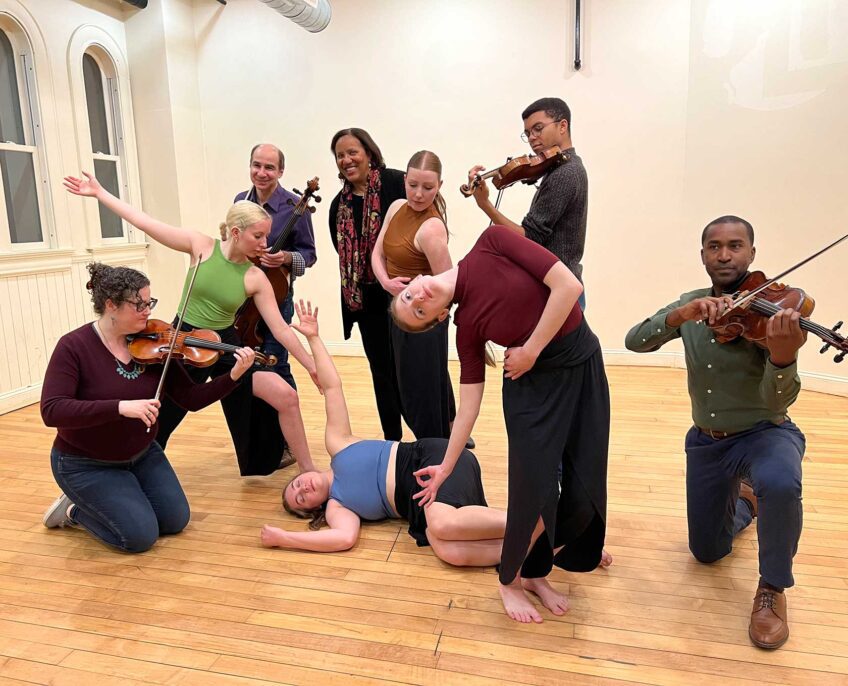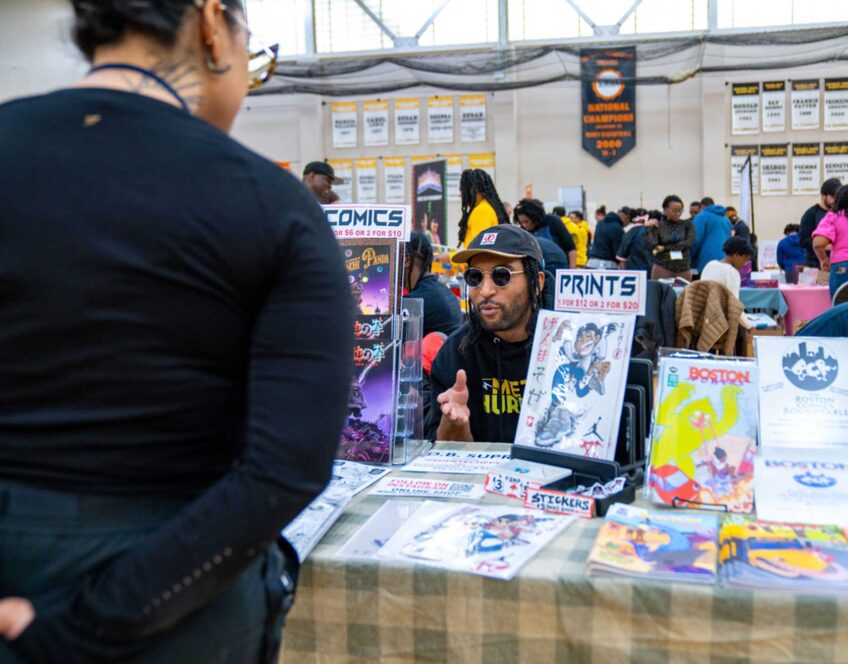
Born in Tulsa, Okla., on June 2, 1953, Cornel Ronald West is one of America’s most gifted and provocative public intellectuals. The Princeton University professor is the author of “Race Matters,” a classic work credited by many with changing the course of the country’s dialogue about justice and equality along the color line. A cultural icon, he has received the American Book Award, as well as more than 20 honorary degrees.
The always talkative West recently spoke to the Banner about his new book, “Hope on a Tightrope,” weighing in on everything from President-elect Barack Obama and the economy to affirmative action and the controversial notion of a “post-racial” America.
A mutual friend asked me to say hello for her. She was an undergrad when you were a grad student at Princeton. She says that back in the day you would come to parties on campus dressed in a black vest, black slacks and a white shirt, which is still your uniform. That has me wondering: Why do you always wear a three-piece suit?
Wow! Well, first I want to say hello to the dear sister. … Secondly, as far as my wardrobe, my role models are jazz musicians and black preachers. The suit connotes a kind of elegance and commitment to excellence, as well as a seriousness of purpose in your chosen vocation. It also connects to a sense of having a cheery disposition but a sad soul due to the mourning of catching hell because of the bigotry and oppression operating in this nation. So it’s a uniform on the battlefield.
What is your general impression of Princeton students? What do you enjoy about teaching Princeton students, in particular?
Princeton students are, in a way, similar to Harvard students. They work hard. They’re highly disciplined and very intelligent. They spend a great deal of time trying to read and write well. It’s a joy just being in conversation with them. It keeps me young and keeps me humble.
Back in 2006, a book to which you contributed, “The Covenant with Black America,” made my annual 10 Best Black Books List. On the contrary, I selected Barack Obama’s “The Audacity of Hope” as the worst book of the year; I saw it as the transparent attempt of a guileful politician to be all things to all people.
That’s what it is. Strategic and tactical, all the way down. It’s speaking less to the truth as regards to the election, which is to say white moderates, the folks he was appealing to for most of the campaign, because he figured he had black folks in his back pocket, which he did. And we did push him over the top. But the truth still has got to rise sooner or later.
What troubled me most during the campaign was how Obama threw the Rev. Jeremiah Wright under the bus, after that historic speech in Philadelphia about how he couldn’t abandon him any more than his white grandmother. It got me wondering whether Obama would even want the endorsement of any celebrity who espoused left-of-center leanings.
Well, that was the fear of my close partners, including brother Tavis [Smiley]. I was with Obama from Iowa, from the very beginning. I spoke twice on his behalf back then. But in the middle of the campaign, I also spoke at Jeremiah Wright’s retirement and defended him in his church. I asked what was wrong with his saying God damn a nation that had killed innocent people. There’s nothing controversial about that whatsoever.
It was interesting, because the Obama surrogates had to be OK’d by the national headquarters in Chicago. And they said “no” to most of the black folks who were suggested. Yet when my name came up to speak in Ohio, they said “yes,” according to one black brother who was on staff there. He was surprised, after all the stuff he’d heard me saying. When he asked why I’d been approved, they told him, “We really believe, that, deep down, brother West really loves Obama. He just speaks his mind. And when he speaks his mind, he actually brings more people.”
And, of course, they’re interested in votes: “He brings more credibility, even though Barack knows he’s going to be critiqued when brother West’s there. But he’s also going to get his support because he criticizes in such a way that he’s not going to be trashing our candidate, because he really loves him.” And sure enough, I was invited to Ohio in October by the campaign, whereas there were a number of other folks they rejected, including some members of the Congressional Black Caucus.
Why were they rejected? Because they had supported [New York Sen.] Hillary [Clinton] in the primaries?
Yes, and because they thought they couldn’t bring big enough crowds, and they didn’t think they would speak with enough passion. They didn’t just want technocrats out there and have only 75 people show up. They wanted somebody who speaks with passion who was going to connect. That’s the only way you get people to the polls.
What do you think of Obama’s appointments of Hillary and so many folks from the Clinton administration?
We now live in the Age of Obama. It’s such a profoundly overwhelming and in some ways unprecedented moment. I fear that my dear brother Obama might be reluctant to step into his own age. So he’s falling back on them and recycling them to have some sense of connection to what was before and for their savvy and experience. But I think the crisis is so deep that we’re going to need a much deeper break from the Age of Ronald Reagan.
It is understandable that Obama would be hesitant to step into his own age, because if he makes his own break he could be accused of bringing in radicals or inexperienced people. He thinks he needs to make the establishment feel comfortable. Consequently, the establishment’s crazy about all the people he’s picked so far.
Even the Republicans, which is scary to some.
Absolutely! That’s very scary. That would make me have grounds for suspicion. However, I do want to give him time. If he really does aspire to what I believe and hope he aspires to — namely, to be a progressive Lincoln — then we have to be like Frederick Douglass to help push him. If he has his own vision, then he could use these folks to push it through. But he has to be bold enough, strong enough and visionary enough to step into his own age.
When he chose Rahm Emanuel as his chief of staff, I wasn’t excited at all. But I do want to give him time, because Emanuel is such a bulldog maybe he can push progressive legislation through, the way he pushed through NAFTA and the welfare bill, both of which were disasters for the working people and poor people. So I’m just being honest about our skepticism.





![Banner [Virtual] Art Gallery](https://baystatebanner.com/wp-content/uploads/2024/04/NJ-H_1-713x848.jpg)

